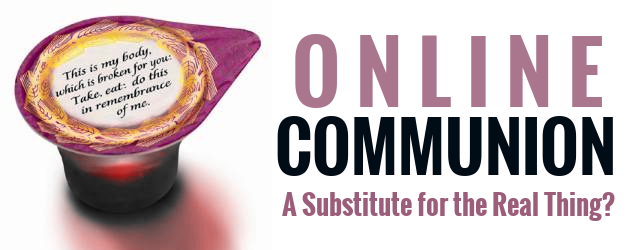A few posts ago there was a mention of our time’s preference to the Aristotelian ideal over the Platonic ideal. That is a fancy way of saying that we put the emphasis on the material (what we can see and measure) over the transcendent. Recently the UMC is engaged in a conversation about the viability of online communion. Online communion is the idea that an elder can invite someone at their home who is participating in worship via online/television to grab some bread and juice and take communion at their home.
Needless to say people weighing in on the validity of the sacrament via the internet. I wonder if our resistance to online communion is rooted in the idea that what is real is what is material. "Real" community is those who are in the same physical space breathing the same physical air. "Real" community is that gathering of people that can be touched, counted, measured and seen. Could it be that our understanding of community is influenced more by Aristotle's teaching of what is "real"?
In a conversation with my friend Kyle he mentioned that the online communion conversation sounds something like reverse Gnosticism. Whereas Gnosticism elevated the Spirit over the material today we elevate the material over the Spirit.
Elevating the Material or the Spirit over the other is neither helpful nor loving.
If the Body of Christ is mystical, if we are surrounded by such a great cloud of witnesses, if we are all tied together in the single garment of destiny, then can we really say the sacraments are only valid in the material or the Spirit?

